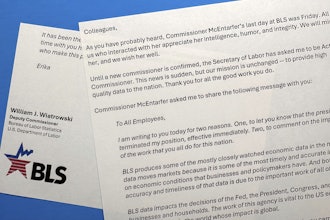The pro-job environment in right-to-work states is paying off with new automotive jobs. Tennessee is the home of Volkswagen’s new $1 billion auto assembly plant, as well as plants operated by Nissan and GM. Alabama boasts billion-dollar plants operated by Mercedes-Benz, Honda and Hyundai. Texas enjoys a large automotive manufacturing presence with Peterbilt, GM, International and Toyota. One reason for these states’ growing success in the automotive industry is their strong right-to-work laws embodying a commitment to a worker’s right to choose not to be part of a labor union. Right-to-work laws are an important factor to companies considering where to set up new operations.
In the twenty-two states with right-to-work laws, workers cannot be forced to join unions, or to pay union dues if they decide not to join. In non-right-to-work states, workers must join unions or pay union dues to keep their jobs. If an employee working in a non-right-to-work state fails to join the union or pay union dues then the union forces the company to terminate the employee.
What does the automotive industry’s decision to set up shop mean for these right-to-work states? It means jobs and increased tax revenues. An analysis by the University of Tennessee predicted that Volkswagen’s recent investment will raise incomes in the region by $511 million annually and will generate more than $55 million per year in new tax revenues. Other automotive manufacturers and component suppliers are spending billions in upgrades and new construction at plants in right-to-work states.
Many states have not been as fortunate as Tennessee, Alabama and Texas. For example, states such as New Hampshire have problems attracting businesses and producing job growth partly because union’s have successfully thwarted lawmakers’ repeated attempts to pass right-to-work legislation. The New Hampshire legislature overwhelmingly passed right-to-work legislation earlier this year only to have the legislation vetoed by the governor. New Hampshire would have been the first state in the Northeast to have a right-to-work law.
The National Right to Work Legal Defense Foundation reports that right-to-work states “enjoy faster growth and higher real purchasing power than their forced unionism counterparts.” Research from other groups confirms the Foundation’s claims and shows that right-to-work laws are also better for individual workers. A study by the National Institute for Labor Relations Research indicates that from 1999 to 2009, right-to-work states saw a 28.3 percent increase in personal income, compared to a 14.7 percent increase in non-right-to-work states. Right-to-work laws are also good for the businesses that employ the workers. A recent study evaluated 30 factors to identify the top 10 best states to do business, and the top 5 states on the list were right-to-work states.
A labor union is attempting to prevent Boeing from opening a plant in South Carolina (right-to-work state) instead of Washington (non-right-to-work state). In 2009, Boeing announced that it would build a plant to meet demand for its new 787 Dreamliner aircraft. Boeing wanted to build the plane at its existing plant in Washington, and attempted to negotiate with the union representing its workers, the International Association of Machinists and Aerospace Workers. The talks broke down because the union wanted a seat on Boeing’s board of directors and a promise that Boeing would build all future airplanes in Washington.
Boeing has experienced significant problems with the union for many years. The union shut down Boeing’s production line four times since 1989, including a 58-day strike in 2008 that cost Boeing $1.8 billion. Following the failed negotiations with the union regarding the Dreamliner plant, Boeing began looking for alternative locations. Their decision to open a facility in South Carolina will create more than 1,000 jobs and will add $6 billion annually to South Carolina’s economy. Boeing’s decision highlights the benefits states receive when they honor workers’ freedom to choose not to join a union.
Boeing’s decision to build the new plant in South Carolina infuriated the union. They filed an unfair labor practice charge with the NLRB asking the government to stop Boeing’s plans to open the new facility. The NLRB responded by filing a complaint alleging Boeing retaliated against the union by acting out of “anti-union animus” when it moved production work to South Carolina. The NLRB is asking a judge to order Boeing to operate the aircraft production line at a unionized plant in Washington. The union hailed the NLRB’s complaint as “a victory for all American workers.” Boeing is vigorously contesting the case and is moving forward with plans to assemble planes in South Carolina. The Boeing South Carolina plant could be operating for years before the dispute is resolved.
The NLRB’s attempt to take away Boeing’s ability to run its business is an unprecedented move that is contrary to federal law. Moreover, the NLRB’s actions are bad for business and could have a chilling effect on an already struggling economy. Companies are reluctant to invest in new operations or hire new employees when the companies’ CEOs fear political meddling in business affairs that might impose higher costs. In addition, the NLRB’s action violates a fundamental principle of our American values – that individuals and companies have the right to make their own decisions without government intervention. The National Association of Manufacturers recently surveyed its members regarding how the NLRB’s action against Boeing is affecting their decision-making. Approximately 69 percent of the survey participants indicated the government’s case against Boeing would hurt job growth. Around 49 percent said their capital expenditure plans “have been or may be impacted by the NLRB’s complaint.”
The benefits to right-to-work states and their residents are clear – jobs are created because businesses want to move to pro-business states and workers have the freedom to choose whether they want to join a union.
---
[1] Pollina Corporate Real Estate, Inc. survey selected Virginia, Utah, North Dakota, Wyoming, Nebraska as the top 5 pro-business states. http://www.pollina.com/top10probusiness.html



















